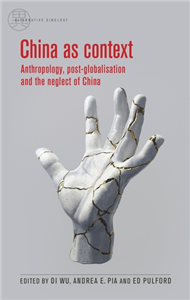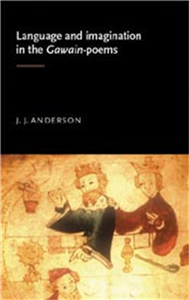Your Search Results
-
Lindbak + Lindbak
Lindbak + Lindbak is a fresh new Nordic publishing house adding an innovative twist to popular genres like crime, romance & children's books.
View Rights Portal
-
Promoted ContentOctober 2023
Veganomics
The vegan revolution and its future markets
by Joël Luc Cachelin
— A practical guide on how an entirely vegan society can work — A thought-provoking utopia – exactly what we need right now — By the futurologist and founder of the Wissensfabrik ("Knowledge Factory") with a large network We're on an idyllic, albeit fictional, archipelago in the North Sea. Nobody keeps an animal against its will here, and no one sells the materials obtained from killing an animal. No animals are used in agriculture or for research, beauty and food industries. There are no zoos, and there's no animal testing. No one wears wool or leather. Vegania is entirely vegan. Now Karnivoria wants to follow suit, and asks Vegania for advice: how can an entirely different society work; how is it possible to move away from animal products, and how would this affect the catering and food industries and agriculture? An exciting scientific experiment that Joël Luc Cachelin underpins with linguistic sophistication and scientific expertise in this extraordinary book about the possibilities of a livestock-free society.
-
Promoted ContentMay 2023
How Philosophers Fail Themselves
The somewhat different historyof philosophy
by Otto A. Böhmer
— Philosophy for beginners — For philosophy enthusiasts — A pleasant read This truly brilliant book tells of the sometimes sublime, sometimes exhilarating efforts of philosophers to maintain their attitude in everyday life without forgetting the meaning of their own words – and how they ultimately failed to do so. The minor, sometimes bizarre events in the lives of the great philosophers fit so aptly in the picture of the respective philosophy that one has to assume they could have been conceived to keep the associated intellectual giant in a strange and memorable mood. A book of cheerful science, full of wit, narrative and linguistic eloquence.
-
 Trusted Partner
2023
Trusted Partner
2023German for Pharmaceutical Practice
Communicate, research, present
by Nadine Yvonne Sprecher, Annette Thomas, Annegret Lehmann and Anke Schichte. In collaboration with Christiane Schneider
In the pharmacy, the staff communicate with customers, colleagues, the medical profession, sales representatives and nursing home staff. Pharmacy employees produce written information based on well-chosen sources and represent the pharmacy to the outside world through presentations, on social media, or with the help of flyers, posters and other promotional materials. All this presupposes the confident use of language, and is best trained in advance. Part A of this work provides assistance for the most diverse communicative requirements in the pharmacy. A short theoretical explanation is always followed by several tasks so that you can immediately put what you have learned into practice and try it out. The „Brief overview of grammar and language knowledge“ boxes point out linguistic stumbling blocks. Those who are not yet sure of the technical terms can make themselves fit in Part B. Here one learns how to conduct a good counselling interview according to the BAC guideline. Extensive lists of technical terms and their explanations suitable for everyday use – all arranged according to organ systems – contain the most important vocabulary for everyday pharmacy work. A totally practical German lesson!
-
 Trusted Partner
Humanities & Social SciencesJuly 2020
Trusted Partner
Humanities & Social SciencesJuly 2020Race talk
Languages of racism and resistance in Neapolitan street markets
by Antonia Lucia Dawes
This electronic version has been made available under a Creative Commons (BY-NC-ND) open access license. Race talk is about language use as an anti-racist practice in multicultural city spaces. The book contends that attention to talk reveals the relations of domination and subordination in heterogeneous, ethnically diverse and multilingual contexts, while also helping us to understand how transcultural solidarity might be expressed. Drawing on original ethnographic research conducted on licensed and unlicensed market stalls in in heterogeneous, ethnically diverse and multilingual contexts, this book examines the centrality of multilingual talk to everyday struggles about difference, positionality and entitlement. In these street markets, Neapolitan street vendors work alongside documented and undocumented migrants from Bangladesh, China, Guinea Conakry, Mali, Nigeria and Senegal as part of an ambivalent, cooperative and unequal quest to survive and prosper. As austerity, anti-immigration politics and urban regeneration projects encroached upon the possibilities of street vending, talk across linguistic, cultural, national and religious boundaries underpinned the collective action of street vendors struggling to keep their markets open. The edginess of their multilingual organisation offered useful insights into the kinds of imaginaries that will be needed to overcome the politics of borders, nationalism and radical incommunicability.
-
 Trusted Partner
Humanities & Social SciencesSeptember 2025
Trusted Partner
Humanities & Social SciencesSeptember 2025China as context
Anthropology, post-globalisation and the neglect of China
by Di Wu, Andrea E. Pia, Ed Pulford
Decades-old calls to promote the significance of China for anthropological theory and the social sciences more generally ring more urgently today given China's importance to social, political and economic life globally. Yet Chinese-grounded ideas remain marginal to the discipline, and scholarly discussions retain a sense of China as an 'Other' apart from the 'real' world, and thus unsuitable or generating widely applicable theoretical ideas. Inspired by East Asian postcolonial scholarship, this volume tackles this unsettling situation head-on, arguing that without taking China seriously as a powerful agent, a locus of knowledge production, and a new discursive topos of an emerging post-global imaginary, anthropologists and other social scientists may fail to adequately analyse the global present and make sense of both the material and immaterial forces that animate it, wherever and however they work. Amid the end of Western globalisation and shifting anthropological understandings of relations between ethnography and theory, we show how 'China' must be understood as the ordinary 'context' for anthropological research practices worldwide.
-
 Trusted Partner
July 2021
Trusted Partner
July 2021The World of the North
Between Ragnarok and welfare utopia: A cultural-historical deconstruction
by Bernd Henningsen
— Analysis of how we view Europe's North and how this image emerged — An outsider's perspective on Nordic societies and their self image — Serves as an introduction into Northern European culture and society Our image of Northern Europe has been shaped by projections and desires in the long history of encounters: berserkers and war atrocities, bad weather, beautiful nature, stable political systems, social welfare, equality and prosperity, peacefulness, low corruption, hygge and Bullerby – all this is part of the Nordic narrative. But what about the religious, linguistic and ethnic homogeneity, what about the muchvaunted Nordic cooperation? How do politics "work" in the North? Why are Northern Europeans the happiest people?
-
 Trusted Partner
Humanities & Social SciencesMarch 2017
Trusted Partner
Humanities & Social SciencesMarch 2017The language of empire
Myths and metaphors of popular imperialism, 1880-1918
by Robert Macdonald
The debate about the Empire dealt in idealism and morality, and both sides employed the language of feeling, and frequently argued their case in dramatic terms. This book opposes two sides of the Empire, first, as it was presented to the public in Britain, and second, as it was experienced or imagined by its subjects abroad. British imperialism was nurtured by such upper middle-class institutions as the public schools, the wardrooms and officers' messes, and the conservative press. The attitudes of 1916 can best be recovered through a reconstruction of a poetics of popular imperialism. The case-study of Rhodesia demonstrates the almost instant application of myth and sign to a contemporary imperial crisis. Rudyard Kipling was acknowledged throughout the English-speaking world not only as a wonderful teller of stories but as the 'singer of Greater Britain', or, as 'the Laureate of Empire'. In the last two decades of the nineteenth century, the Empire gained a beachhead in the classroom, particularly in the coupling of geography and history. The Island Story underlined that stories of heroic soldiers and 'fights for the flag' were easier for teachers to present to children than lessons in morality, or abstractions about liberty and responsible government. The Education Act of 1870 had created a need for standard readers in schools; readers designed to teach boys and girls to be useful citizens. The Indian Mutiny was the supreme test of the imperial conscience, a measure of the morality of the 'master-nation'.
-
 Trusted Partner
Literature & Literary StudiesJanuary 2021
Trusted Partner
Literature & Literary StudiesJanuary 2021Language and imagination in the Gawain poems
by J. Anderson
This major new literary study offers a fresh view of the significance of the famous group of fourteenth-century poems, 'Pearl', 'Cleanness', 'Patience' and 'Sir Gawain and the Green Knight'. It is a comprehensive study which puts the poems themselves firmly at its centre, though it is always alert to relevant aspects of their literary and cultural context. John Anderson builds his discussions of the poems' ideas on an examination of the anonymous poet's superb Shakespeare-like language. He finds that the great fourteenth-century struggle, between religious and secular forces for control of men's minds, underlies all the poems. This title is the first in the new Manchester Medieval Literature series, which makes readability a priority. Accordingly, despite its wide range of reference and the radicalism of some of its leading ideas, this book is written in a jargon-free style designed to appeal to specialist, non-specialist and student readers alike.
-
 Trusted Partner
Literary studies: classical, early & medievalMarch 2005
Trusted Partner
Literary studies: classical, early & medievalMarch 2005Language and imagination in the Gawain poems
by J. J. Anderson
This major new literary study offers a fresh view of the significance of the famous group of fourteenth-century poems, 'Pearl', 'Cleanness', 'Patience' and 'Sir Gawain and the Green Knight'. It is a comprehensive study which puts the poems themselves firmly at its centre, though it is always alert to relevant aspects of their literary and cultural context. John Anderson builds his discussions of the poems' ideas on an examination of the anonymous poet's superb Shakespeare-like language. He finds that the great fourteenth-century struggle, between religious and secular forces for control of men's minds, underlies all the poems. This title is the first in the new Manchester Medieval Literature series, which makes readability a priority. Accordingly, despite its wide range of reference and the radicalism of some of its leading ideas, this book is written in a jargon-free style designed to appeal to specialist, non-specialist and student readers alike.
-
 Trusted Partner
Trusted Partner
-
 Trusted Partner
Trusted Partner
-
 Trusted Partner
Trusted Partner
-
 Trusted Partner
AnthropologyMarch 2017
Trusted Partner
AnthropologyMarch 2017Ageing selves and everyday life in the north of England
Years in the making
by Series edited by Alexander Smith, Cathrine Degnen
Seeking to explore what it means to grow older in contemporary Britain from the perspective of older people themselves, this richly detailed ethnographic study engages in debates over selfhood and people's relationships with time. Based on research conducted in a former coal mining village in South Yorkshire, England, Cathrine Degnen explores how the category of 'old age' comes to be assigned and experienced in everyday life through multiple registers of interaction, including that of social memory, in a postindustrial context of great social transformation. Degnen argues that the complex interplay of social, cultural and physical attributes of ageing means that older people can come to have a different position in relation to time and to the self than younger people, unseating normative conventions about narrative and temporality.
-
 Trusted Partner
AnthropologyJanuary 2014
Trusted Partner
AnthropologyJanuary 2014Ageing selves and everyday life in the north of England
Years in the making
by Cathrine Degnen
Seeking to explore what it means to grow older in contemporary Britain from the perspective of older people themselves, this richly detailed ethnographic study engages in debates over selfhood and people's relationships with time. Based on research conducted in a former coal mining village in South Yorkshire, England, Cathrine Degnen explores how the category of 'old age' comes to be assigned and experienced in everyday life through multiple registers of interaction, including that of social memory, in a postindustrial context of great social transformation. Challenging both the notion of a homogenous relationship with time across generations and the idea of a universalised middle-aged self, Degnen argues that the complex interplay of social, cultural and physical attributes of ageing means that older people can come to have a different position in relation to time and to the self than younger people, unseating normative conventions about narrative and temporality.
-
 Trusted Partner
Humanities & Social SciencesJanuary 2013
Trusted Partner
Humanities & Social SciencesJanuary 2013Christian Dualist Heresies in the Byzantine World, c. 650-c. 1450
by Janet Hamilton, Bernard Hamilton
Christian dualism originated in the reign of Constans II (641-68). It was a popular religion, which shared with orthodoxy an acceptance of scriptual authority and apostolic tradition and held a sacramental doctrine of salvation, but understood all these in a radically different way to the Orthodox Church. One of the differences was the strong part demonology played in the belief system. This text traces, through original sources, the origins of dualist Christianity throughout the Byzantine Empire, focusing on the Paulician movement in Armenia and Bogomilism in Bulgaria. It presents not only the theological texts, but puts the movements into their social and political context.
-
 Trusted Partner
The ArtsOctober 2023
Trusted Partner
The ArtsOctober 2023Windows for the world
Nineteenth-century stained glass and the international exhibitions, 1851–1900
by Jasmine Allen
Windows for the world explores the display and reception of nineteenth-century British stained glass in a secular exhibition context. International in scope, the book focuses on the global development of stained glass in this period as showcased at, and influenced by, these exhibitions. It recognises those who made and exhibited stained glass and demonstrates the long-lasting impact of the classification and modes of display at these events. A number of exhibits are illustrated in colour and are analysed in relation to stylistic developments, techniques and material innovations, as well as the broader iconographies of nation and empire in the nineteenth century.
-
 Trusted Partner
MedicineDecember 2020
Trusted Partner
MedicineDecember 2020African nurses and everyday work in twentieth-century Zimbabwe
by Clement Masakure, Jane Schultz
-
 Trusted Partner
Children's & YA
Trusted Partner
Children's & YAWorld Runner (1). The Hunters
by Thomas Thiemeyer
Tim is one of them. A runner full of passion, ready to go beyond the limits. When one day he gets a letter from GlobalGames he doesn’t hesitate to accept the challenge for a second. 7 caches have been hidden in 7 locations. 100 young people are chasing after them. Each one against the others. But Tim soon realises that he can’t do it alone. He finds an ally in the fascinating Annika, known as Sakura. But can he really trust her? Or is everyone just running for themselves after all? Who’s ready to go the furthest to find the biggest cache in the world?
-
 Trusted Partner
Humanities & Social SciencesJuly 2006
Trusted Partner
Humanities & Social SciencesJuly 2006India in a globalized world
by Sagarika Dutt, Caroline Wilding
This book looks at India in the context of a globalized world. It starts by looking at the history of Indian civilization, exploring the roots of Indian identity and highlighting processes such as foreign invasions, foreign trade, cultural imperialism, colonial rule and the growth of Indian nationalism. The book examines the gradual democratization of Indian politics. Cultural and ethnic divisions in Indian society are examined in depth, as are the problems that have prevented economic development and stood in the way of economic liberalization. The history of India's integration into the global economy is considered, and the opportunities available to the country in the early years of the 21st century are detailed. The final chapters consider the Indian government's perception of the Indian diaspora, as well as the changing priorities reflected in India's foreign policy since 1947.
-
 Trusted Partner
Humanities & Social SciencesJanuary 2026
Trusted Partner
Humanities & Social SciencesJanuary 2026Humour, subjectivity and world politics
by Alister Wedderburn

























